
Business Kick-Starter Guides
How to Start an Online Clothing Store Without Inventory in 2025?
Starting an online store without inventory? It's not just a dream—it's a viable business model gaining popularity by the day....
21 Essential Questions to Ask Your Wholesale Supplier
Wholesale

It’s no secret that wholesale is classified as one of the most preferred supplying methods among others, such as dropshipping.
The reasons behind this preference are numerous, but we won’t go into detail since the sales numbers can speak for themselves.
As reported by Statista, the US wholesaler sales have reached an estimated amount of around 670 billion USD with an increase of around 10 billion USD within one year.
You can only imagine the number of sales made on a global level.
However, not all wholesalers contribute to these satisfying numbers. Therefore, it’s important to bear in mind a few things instead of jumping headfirst.
If you’re a newcomer to buying wholesale, chances are you neither have an idea where to start looking nor know what criteria to have in mind when the time comes to make a choice.
To ease things up for you, we’ve put together the most important questions to ask your wholesaler.
Check out: Questions to ask dropshipping suppliers
The best way to verify that the supplier you’ve chosen to collaborate with is reliable and sells genuine wholesale products is to find out as much information as possible regarding their experience and work history.
Wholesalers who have secured a network of loyal clients and have been on the market for some time are certain to be more trustworthy and provide you with better wholesale service.
Of course, you can always do a full investigation by yourself by:
However, it’s even better to ask them directly as they may share details that haven’t been published online which could end up being decisive information.
Understanding the merchandise your wholesale supplier offers is crucial for aligning their inventory with your store’s needs.
When selecting a supplier, ask for a comprehensive list or catalog of the products available. This list should include detailed information like product categories, materials, sizes, and variations.
For instance, if your niche is high-end fashion, you’d want to know whether the supplier provides a consistent supply of luxury clothing, accessories, or footwear, and if they carry premium brands or focus on unbranded items.
Additionally, inquire about new product launches or seasonal collections to ensure your store can keep up with market trends.
Don’t forget to ask about quality control measures and how they ensure the merchandise is free of defects.
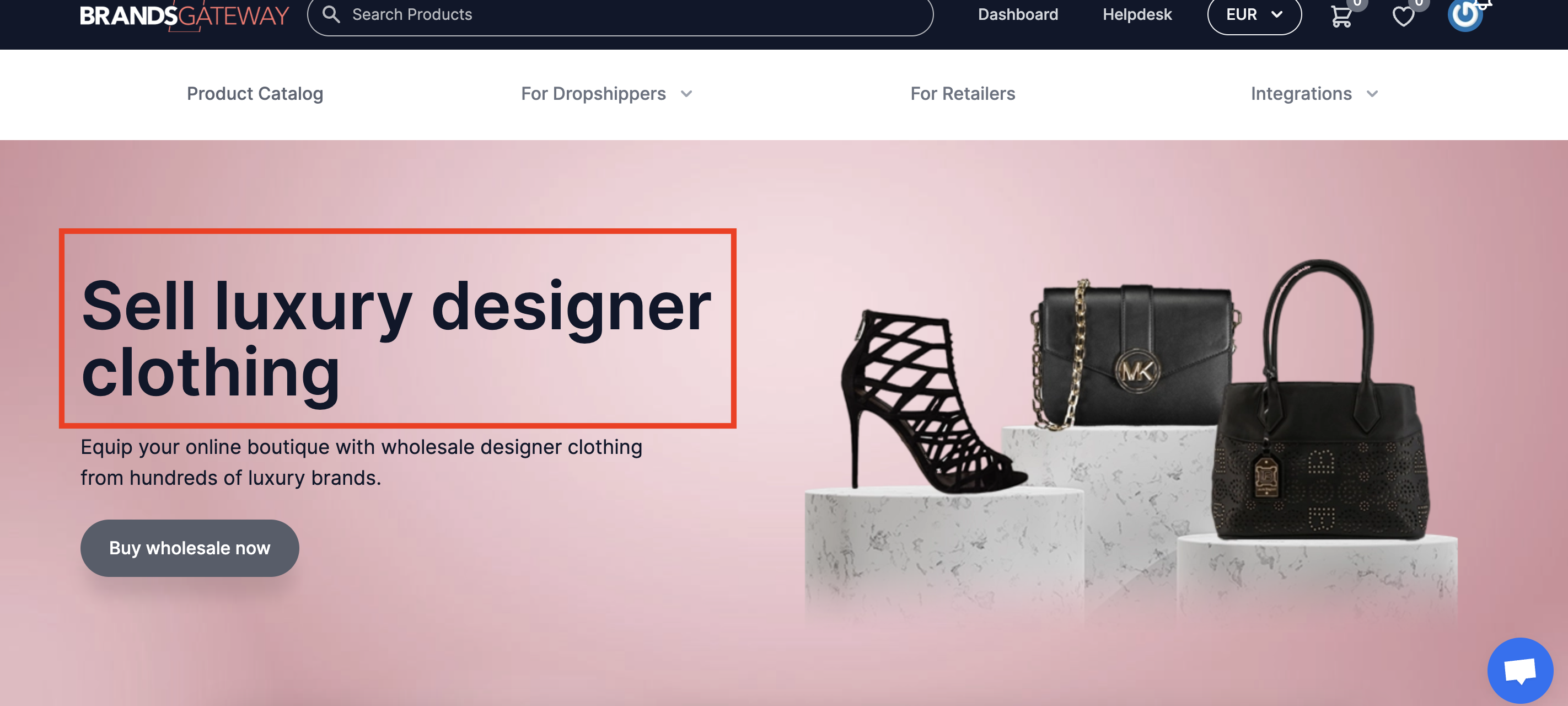
Understanding the supplier’s ordering process is vital to maintaining efficient operations and meeting customer expectations.
Begin by asking if there is a need to create an account on the supplier’s platform. If so, this may require you to provide some business details, such as your name, phone number, email address, business name, business permit, or business registration number.
Once your account is verified, you’ll probably gain access to their wholesale catalog, where you can browse the full range of products available.
in most cases, you can put products you want to order in your shopping cart and finalize your order by paying with card.
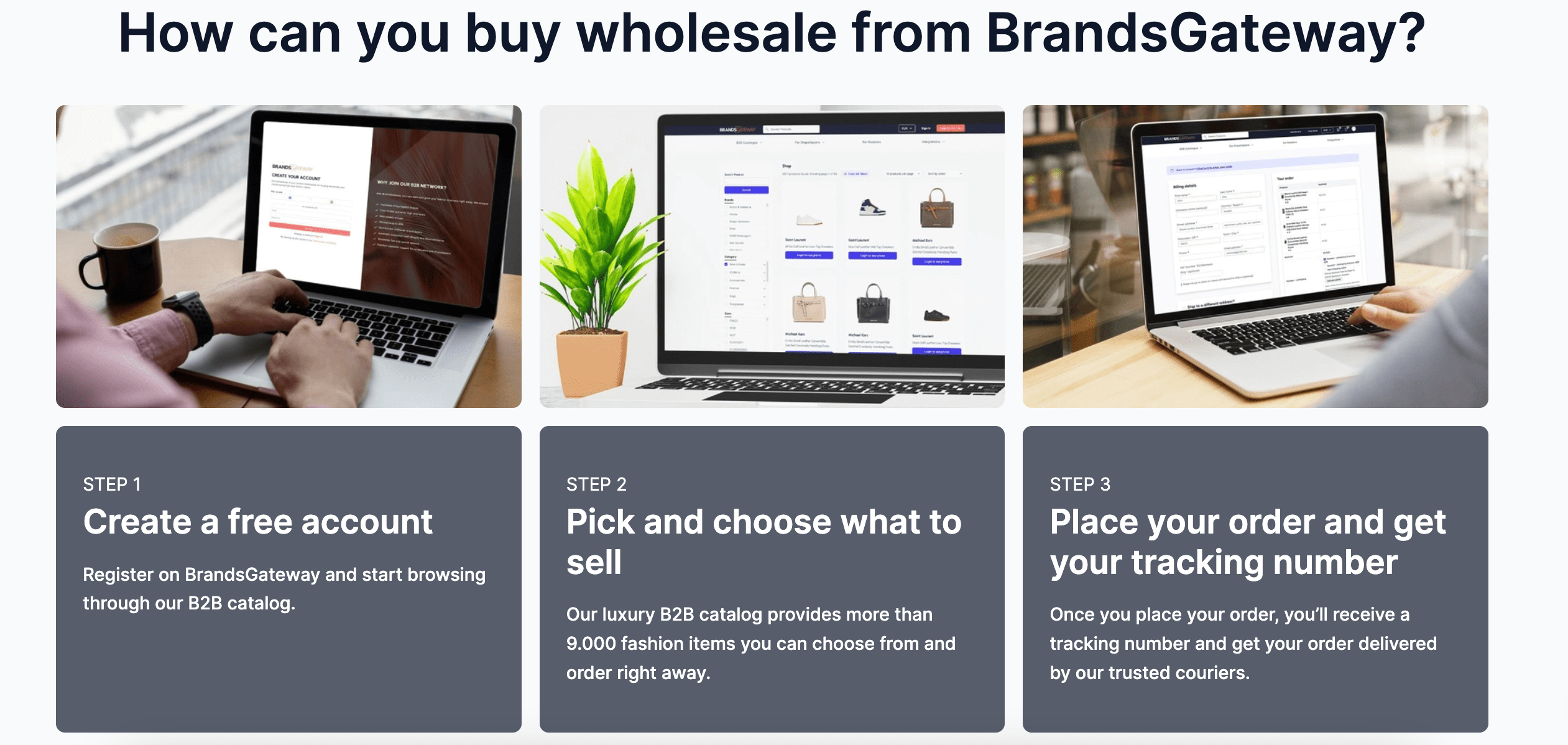
Besides making sure the supplier has sufficient experience, store owners should prioritize finding vendors for your business that offer new clothing arrivals on a regular basis.
For every store out there, the main source of success comes from keeping customers content which is best done when providing them constantly with the latest products.
This recurrent update on items will continuously draw their attention, making them keep coming back to your shop and eventually turning them into a regular clientele.
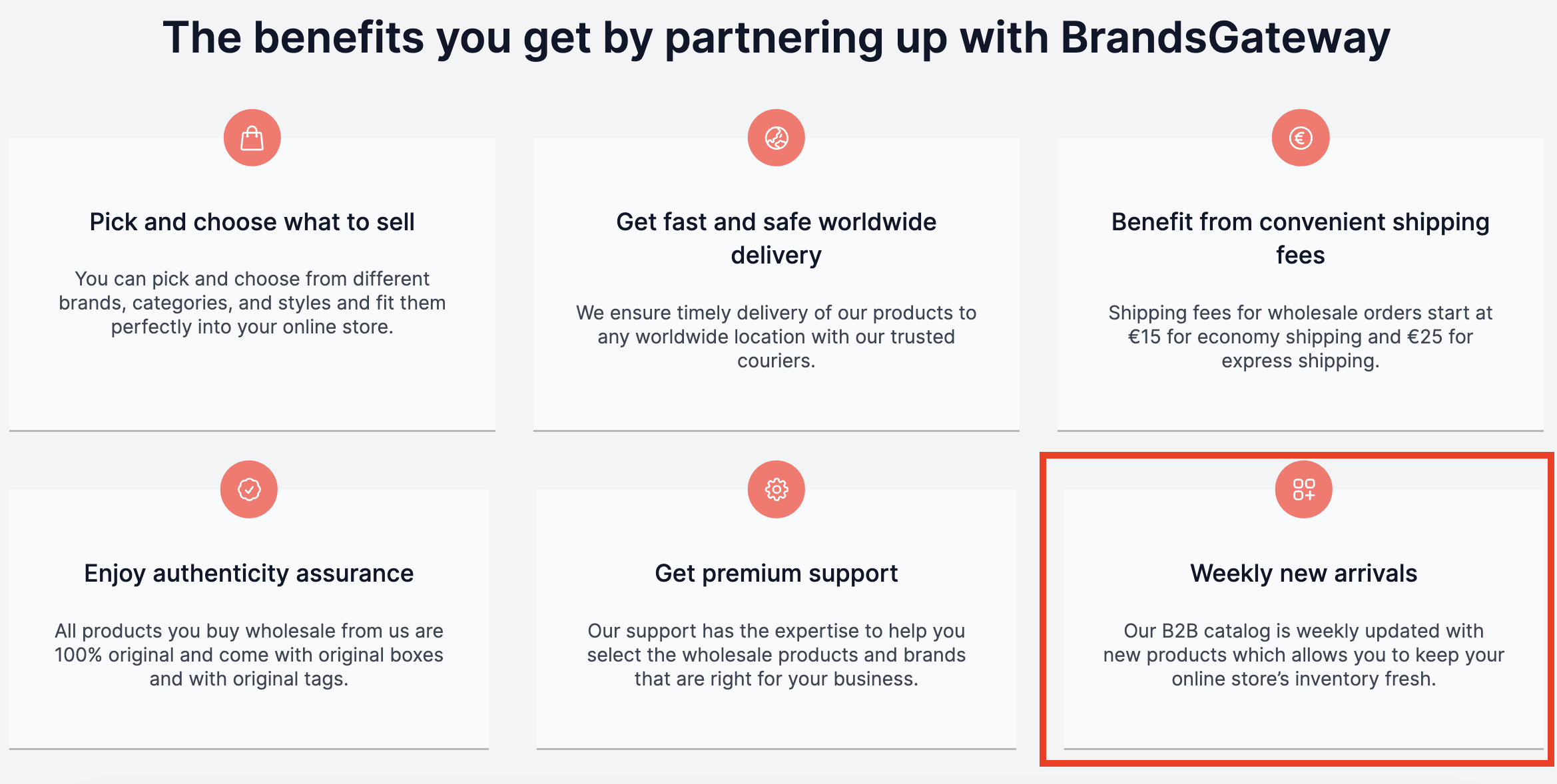
It goes without saying that product diversity plays a crucial role in retaining customers and preventing them from checking out competitors’ stores.
That’s why in your search for the finest wholesaler you should never forget to ask potential suppliers about the variety of products they have at your disposal and estimate if that amount would satisfy your customers’ needs.
Therefore, don’t rush into choosing a supplier before confirming that they offer a wide-ranging portfolio of brands and products that’ll not only bring you happy and loyal customers but also assure you notable revenue growth.
If you are getting into the fashion industry, make certain your supplier of choice covers enough categories of winning products for both men and women to be able to meet shopping enthusiasts’ expectations.
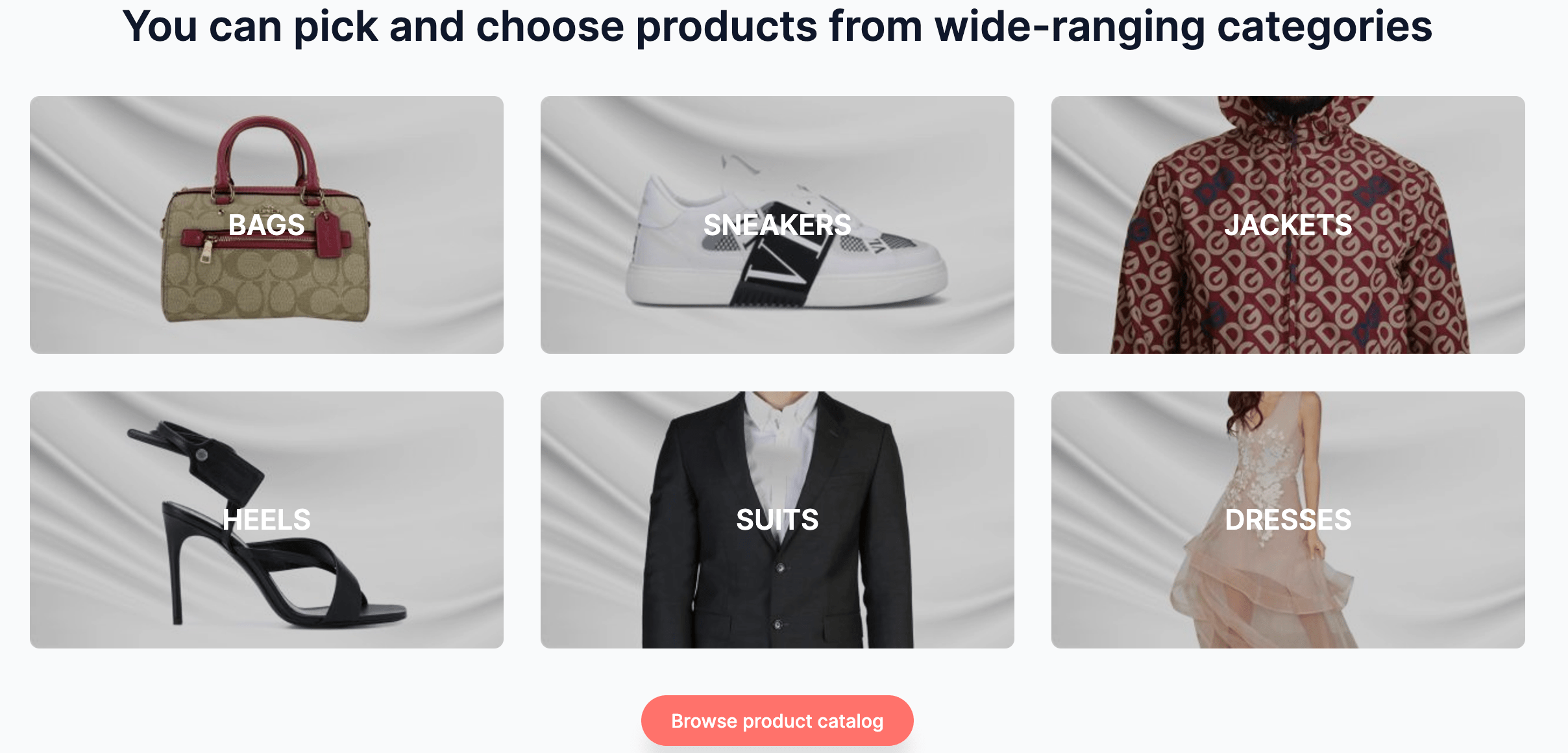
In case your niche consists of selling high-end fashion products, it’s of the utmost importance to verify their authenticity as there are many suppliers offering knock-off items that you may end up purchasing without realizing they’re counterfeit goods.
So, when browsing for wholesalers of luxury brands, remember to look for suppliers that stand behind their products’ authenticity and would stock your store with genuine brands.
The product catalog is every wholesaler’s most significant part of their website, giving prospective customers a sneak peek into their inventory, enough to make a general evaluation of the items they’re selling.
However, many business owners may stumble upon wholesalers that offer an extremely limited preview of their catalog, making the rest of the products available only after one decides to use their services.
So, try to avoid these suppliers and stick with those who give clients access to check out their merchandise by registering for free like BrandsGateway and their catalog of the latest trending clothing items.
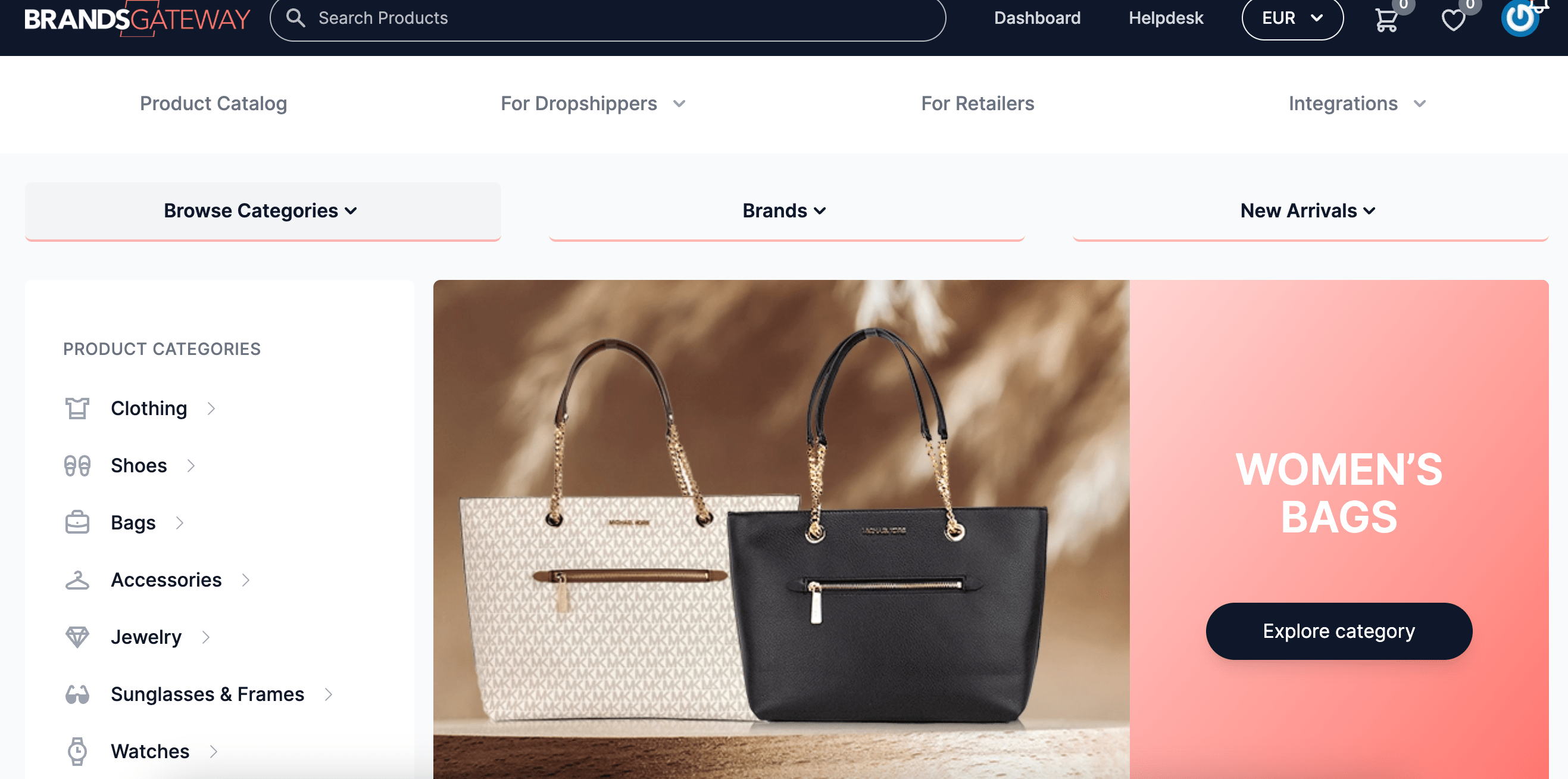
The minimum order quantity can vary tremendously from one wholesaler to another but it mostly depends on the type of products being sold.
For instance, expensive products usually have a higher MOQ than those sold at cheaper prices because they’re high-quality authentic products that are obtained from authorized entities.
Thus, it’s best when clients are informed upfront about the MOQ in order to be able to calculate in advance their order expenses and see if they can fit them into their budget.
The location where the supplier’s merchandise is produced can say a lot about the quality of the products.
Although many suppliers source their goods from authorized vendors and then sell them to retailers, outlet owners, or eCommerce stores, an even bigger number source them from unreliable manufacturers, some of which are known to have significant disadvantages such as the cons of Chinese suppliers.
Because of that, it’s highly recommended to check where your wholesale supplier sources their merchandise from prior to buying a poor-quality bulk of items.
The whereabouts of your potential wholesaler’s warehouses are another thing clients should take into consideration, especially because it can greatly affect the delivery time.
In addition to the price paid when purchasing the products, the buyer is also required to cover custom duties for exporting and importing merchandise from one country to another.
That being the case, try to opt for a wholesaler who has warehouses in several places around the world, such as BrandsGateway, which will not only reduce your expenses but also provide you with fast and convenient delivery services.
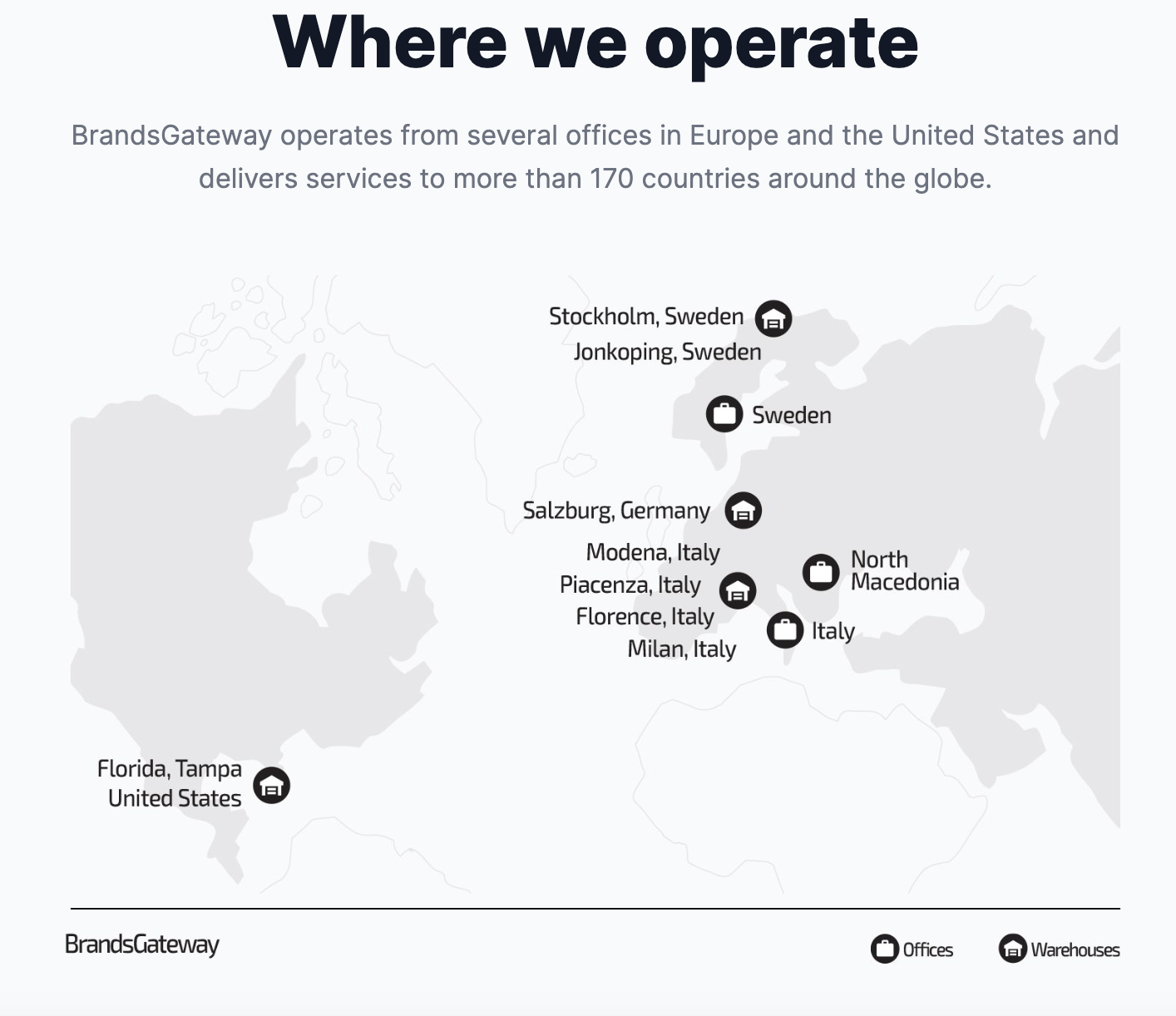
Another vital thing wholesale suppliers should inform you about is the approximate time it would take for them to deliver your orders.
You wouldn’t want to find yourself in a situation in which customers can’t make a purchase of a certain item because your store is out of stock.
Therefore, just like previously mentioned, when choosing a supplier, keep in mind both the location of the warehouses and the time it might take for orders to be handed over to you.
In order for you to be able to keep an eye on your packages, ask your wholesaler if they offer the possibility for you to track your delivery.
In that way, you can be kept posted on the status of your order at all times and be notified almost instantly in the case of any shipping delays.
Hence, make sure to pick out a supplier that would provide you with a tracking number, as BrandsGateway does with its clients, so you could constantly be kept updated on where your order stands.
Before trying to figure out delivery costs, order tracking, or shipping time, you need to find out if the potential suppliers you’ve been looking into ship globally or just locally.
If they don’t ship to your location, you’d only be wasting your time with them.
You shouldn’t be surprised if you ever come across wholesalers who limit their shipping abilities and offer delivery services only within the countries their warehouses are situated in and sometimes including neighboring states.
For that reason, always make sure that you work with a supplier that ships worldwide so that you can build an international eCommerce business.
Being aware of return and refund policies is crucial in the event of having to deal with damaged goods.
Thus, it’s important to have a clear understanding of how your supplier manages situations when clients wish to return products or cancel orders.
Some might offer monetary reimbursement, some may provide store credit, while others might give out coupons or discounts.
In addition, be on the watch for any hidden fees or additional charges that could be imposed by the supplier.
In most cases, suppliers rarely offer freight-collect services concerning the return of products.
In other words, the buyers are the ones responsible for covering the shipping costs when sending items back to the wholesaler.
However, there are suppliers that do bear those costs in the event of merchandise that is faulty, has been damaged, or wrongly shipped.
In order to benefit from a full refund in cases like these, suppliers are likely to ask you to provide them with photos of the products concerned.
After they’ve accepted your request, they’ll be able to reimburse you for your loss.
Therefore, have a good look at the terms and conditions of your wholesaler and take careful notice of the returns and refunds sections.
One more key question to include in your list is regarding the payment methods of the wholesalers you have set your mind on working with.
Taking into account the pros and cons of various payment methods, depending on your preferences and possibilities, you might find some of them are less while others are more suitable for your business.
Thus, it’d be wise to opt for suppliers who present clients with the opportunity to choose among different types of payment.
In this manner, you’d have the freedom to determine which option would work best for you.
To avoid any inconveniences, it’s essential to settle the payment terms with the supplier, meaning, to agree on when payments should be installed.
Usually, wholesalers have clearly defined payment times that clients are expected to respect.
However, for different types of items, there may be different payment terms to be met.
Hence, it’s important to inform yourself thoroughly about invoice deadlines so there won’t be any confusion or unexpected situations.
Keeping your store profitable can be a challenging thing to do, especially for newbies on the market.
In order to make sure you’ll be receiving a decent profit, don’t forget to discuss with your supplier the income you should expect for every item sold.
Select a supplier that offers great wholesale margins which will bring you an excellent financial standing and kick-start your store to stardom.
But before that, make sure you know what profit margins you aim for and understand the difference between margin and markup.
When purchasing products in bulk, luxury brands particularly, wholesalers try to abstain from giving discounts.
It’s an industry standard that has been around for a long time and suppliers attempt to stick with it.
Nevertheless, during the holiday shopping season, chances are you’ll come across discounts for particular categories of products and brands.
So, stay in tune with your supplier so you don’t miss out on those opportunities.
You know that a wholesaler is worth doing business with when they not only supply clients with excellent products but also have at disposal exceptional customer service.
Whether it’s about the above-discussed delivery issues, merchandise troubles, or something else, clients should always be able to lean on customer support for any kind of problem that may arise.
In that way, they can keep steady communication with the supplier around the clock.
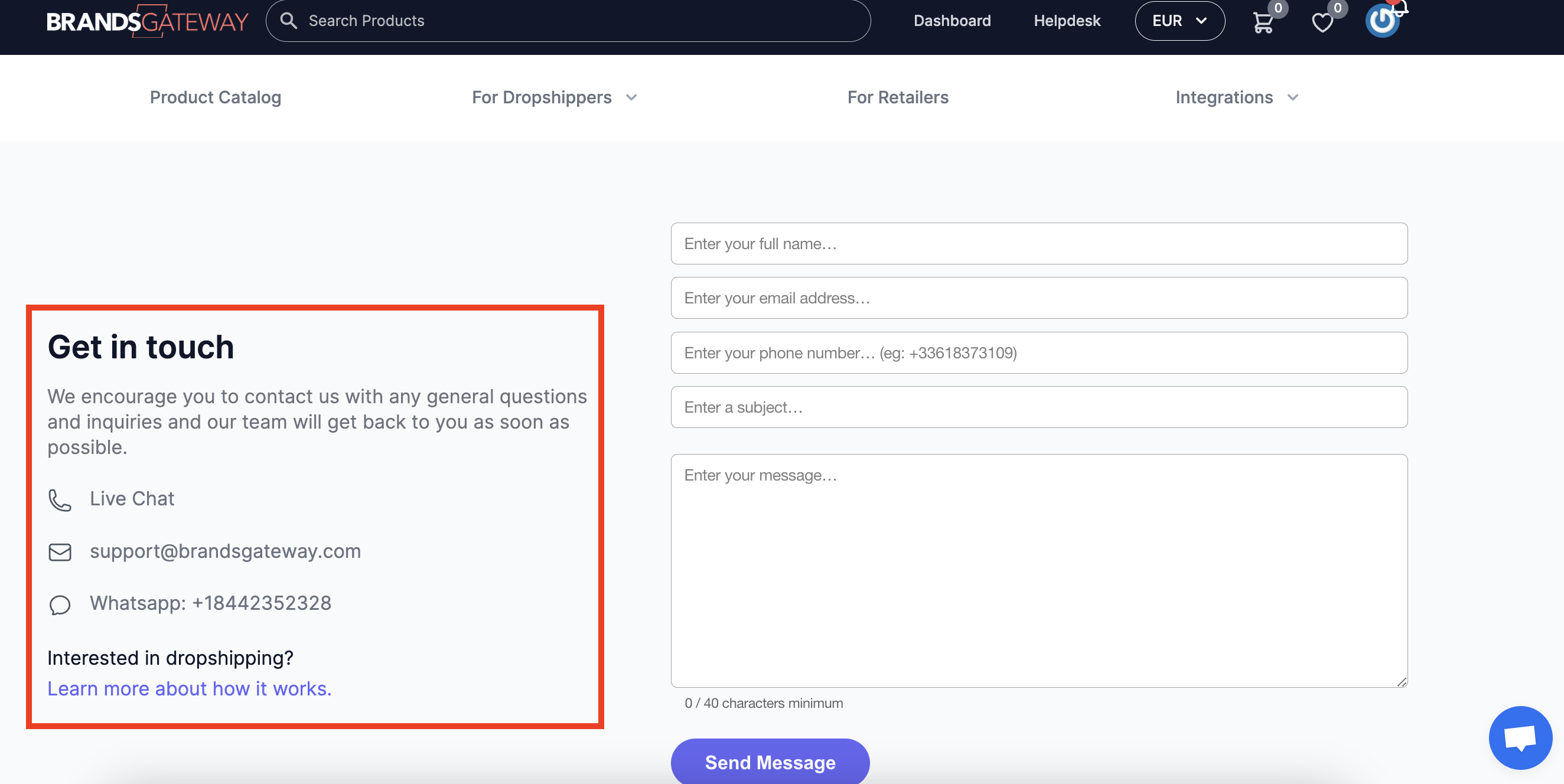
Last but not least, customer reviews and references exert an astounding influence on clients’ decisions.
In a survey conducted by PowerReviews, 98% of consumers said that reviews are an indispensable step when purchasing merchandise, thus, giving them a decision-making role in the purchase process both in the B2C and B2B marketplaces.
So, it wouldn’t be a bad idea to request from suppliers credible reviews. To illustrate, wholesaler BrandsGateway supplies interested retailers with such testimonials, furnishing them with evidence that BrandsGateway is legit.
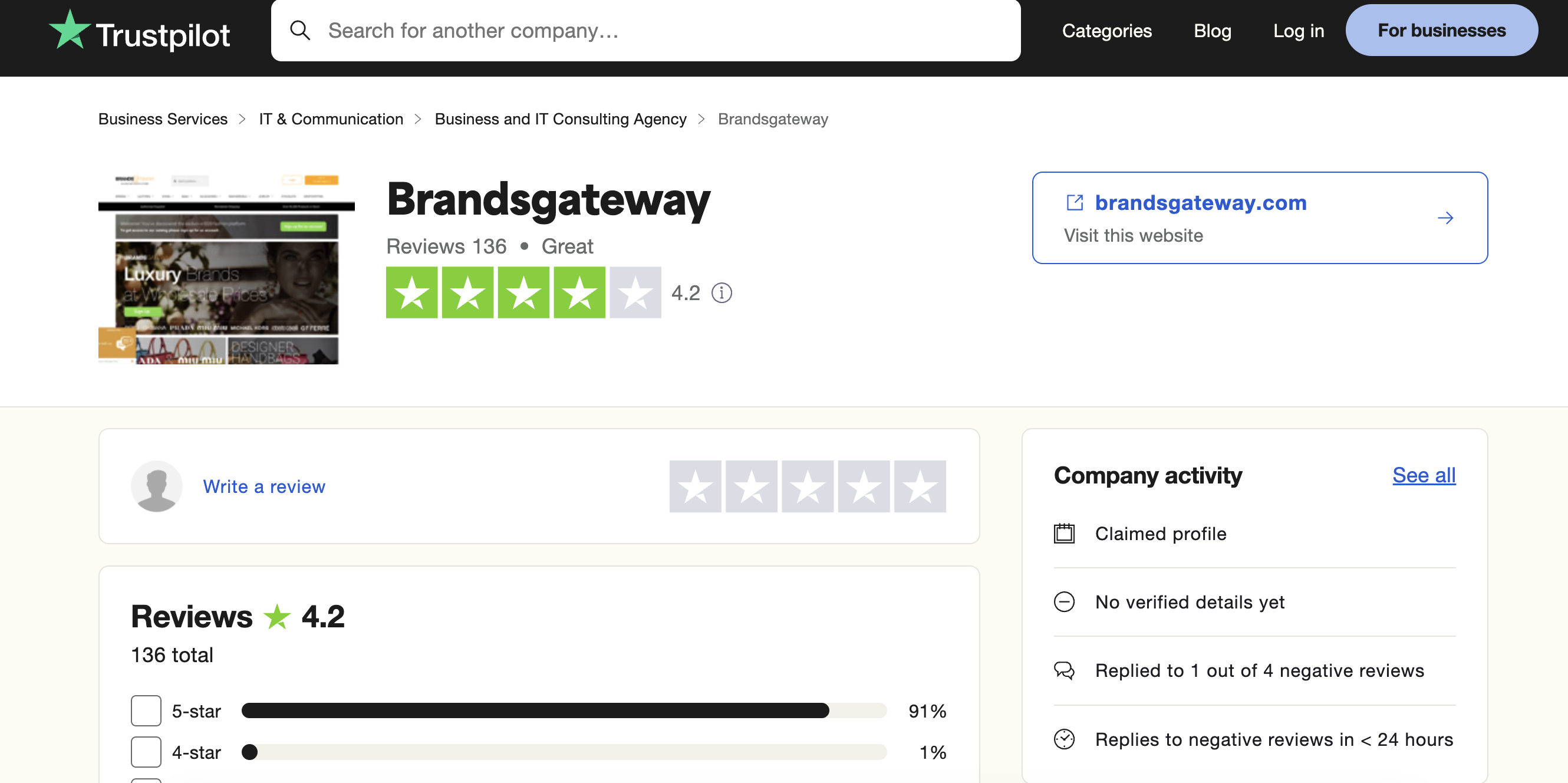
As your store grows and expands, you’re likely to constantly come across new wholesale suppliers.
Some of them might emerge immediately as the perfect match, while others might not be up your alley.
To be 100% sure that they are someone your store would benefit from working with, we recommend putting these questions to use when business talks are in progress.
Thus, we advise you to have this list on hand so you can come back to it whenever you need to evaluate new partners and verify the reliability and authenticity of their services and company.
What is dropshipping?